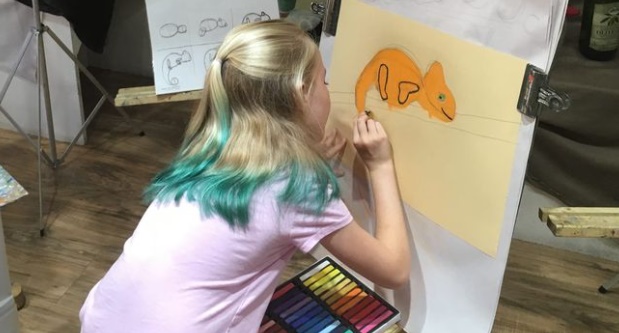
Our Young Masters Program was created to teach children ages 6 and above the mechanical and observational skills necessary to create representational fine art. Through creating representational fine art, our young students will enrich their lives while developing life skills and an appreciation for aesthetics.
Children in any of our classes work at their own pace, according to their skill level, through individualized instruction. Our instructors focus on each students' unique skills and abilities. We help them build perseverance, the capacity to focus, and confidence. At Martin Fine Art Classes we know that children need an emotionally safe environment where they can play, create, experiment, and explore. We encourage kids to express themselves in a friendly environment, created through acceptance, positive feedback, and individualized professional guidance.
However, the benefits of our art classes and camps go far beyond helping kids developing drawing, painting or sculpting skills. Our art classes help kids to develop social skills. Parents will be amazed at what their kids can learn in a short amount of time.
Some of the skills your kids will develop in our art classes and camps:
All these skills help kids to excel in other academic areas and take on the world with confidence and creativity. Art programs can improve children’s social skills. They will learn to work as part of a team, accept and understand different points of view. Through art lessons kids will learn to appreciate different cultures, developing an increased sense of tolerance and social acceptance.
Our young students will learn how to “think outside the box” in terms of creating and problem solving. The act of creation encourages nonlinear thinking and innovation, skills that are useful in all academic or professional areas.